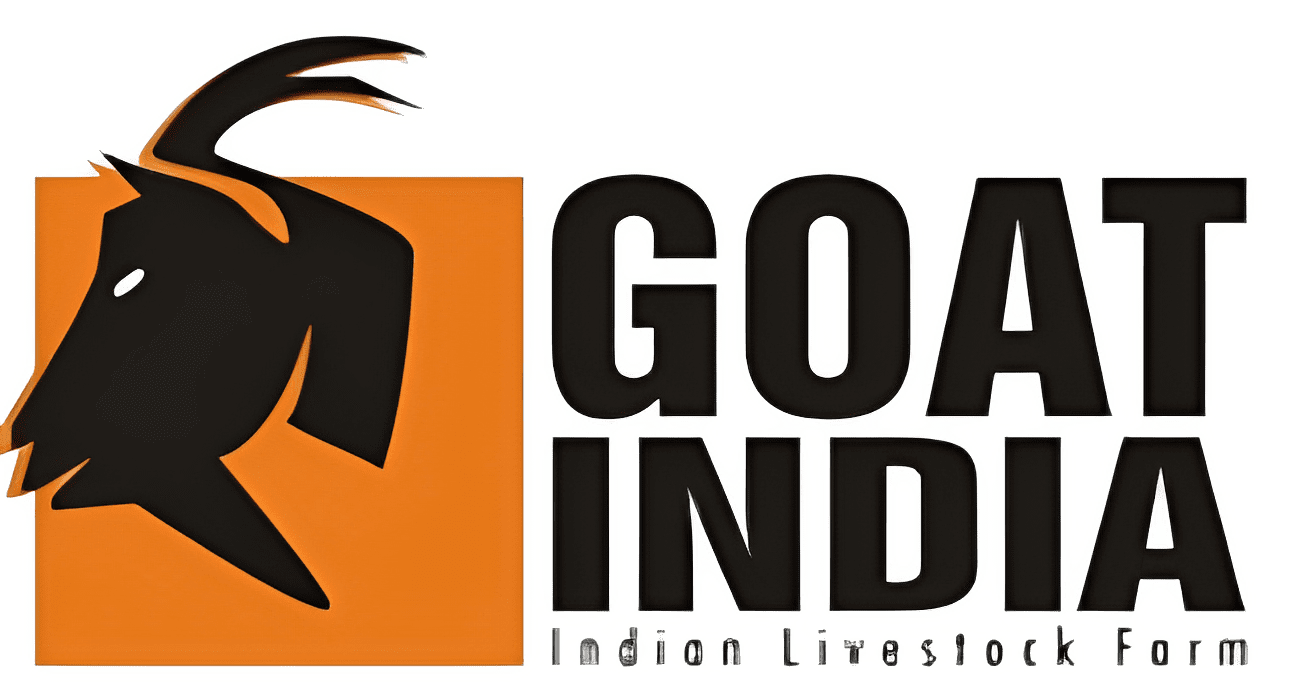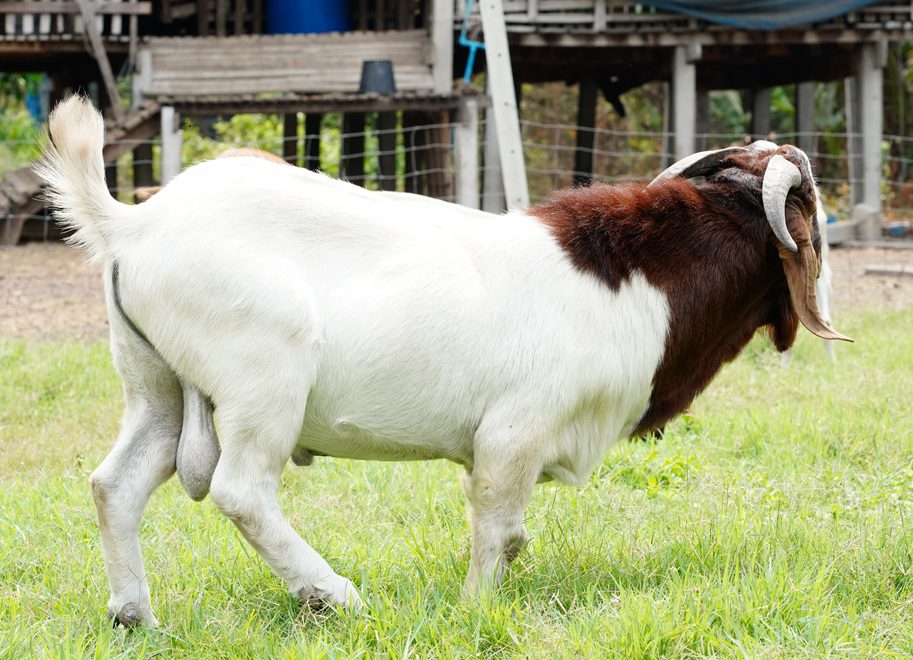Boer Goat
South Africa’s premier meat goat breed, renowned for exceptional growth rates, superior meat quality, and adaptability to diverse Indian climatic conditions.
Boer Goat Performance Metrics
Factual data on this high-performance meat goat breed adapted for Indian farming conditions
Comprehensive Boer Goat Guide
Detailed information on breed characteristics, performance, and management practices
Physical Appearance
Distinctive white body with brown head, large frame, and well-muscled conformation. Does: 60-70kg, Bucks: 90-120kg average weight.
Body Structure
Broad chest, well-sprung ribs, strong legs, and excellent bone structure. Pendulous ears and Roman nose profile characteristic.
Coat & Color
Short, smooth coat primarily white with brown head markings. Some variations include red or black head coloring patterns.
Size Variations
Large-framed breed with height: Does 65-70cm, Bucks 75-85cm at withers. Significant size advantage over indigenous breeds.
Growth Rate
Exceptional daily weight gain: 200-300g under good management. Kids reach 35-40kg by 12 months of age.
Feed Conversion
Efficient feed utilization with 6:1 to 8:1 feed conversion ratio. Excellent foraging ability on natural vegetation.
Meat Quality
Superior carcass characteristics with 50-55% dressing percentage. Lean meat with excellent marbling and flavor.
Reproductive Performance
Does mature at 18-24 months. Kidding rate: 180-200%. Breeding season flexibility with year-round breeding potential.
Housing Requirements
Spacious shelter: 3-4 sq.m per adult. Good ventilation essential. Semi-open housing suitable for most Indian regions.
Feeding Program
High-quality roughage plus 300-500g concentrate daily. Mineral supplementation crucial. Fresh water ad libitum.
Health Management
Regular vaccination schedule. Deworming every 3-4 months. Hoof trimming and health monitoring protocols essential.
Climate Adaptation
Heat tolerant but requires shade. Suitable for semi-arid regions. Performs well in Rajasthan, Gujarat, Maharashtra.
Breeding Age
Does: First breeding at 18-20 months or 70% adult weight. Bucks: Service capability from 12-15 months of age.
Breeding System
Natural service preferred. Buck to doe ratio 1:25-30. Artificial insemination available in select regions.
Pregnancy Management
Gestation period: 145-155 days. Enhanced nutrition in last trimester. Separate kidding pens recommended.
Kid Management
Colostrum within 2 hours of birth. Weaning at 3-4 months. Creep feeding from 3 weeks of age beneficial.
Practical Farming Information
Evidence-based guidance for successful Boer goat farming in Indian conditions
Nutritional Requirements
Daily Feed Requirements:
• Dry matter: 3-4% of body weight
• Protein: 12-16% (breeding), 10-12% (maintenance)
• Energy: 2.5-3.0 Mcal ME/kg DM
• Calcium: 0.6-0.8%, Phosphorus: 0.4-0.6%
Consult veterinarian for specific feed formulations.
Housing Specifications
Shelter Requirements:
• Floor space: 3-4 sq.m per adult goat
• Height: Minimum 3 meters
• Ventilation: Cross-ventilation essential
• Flooring: Raised, well-drained concrete
• Separate areas: Kidding, isolation, feeding
Health Management
Vaccination Schedule:
• PPR: Annual vaccination
• Enterotoxaemia: Bi-annual
• Foot & Mouth: As per local guidelines
• Deworming: Every 3-4 months
Follow veterinary recommendations for your region.
Breed Comparison & Performance Data
Factual comparison of Boer goats with other popular Indian breeds
| Characteristic | Boer Goat | Jamunapari | Barbari | Sirohi |
|---|---|---|---|---|
| Adult Weight – Does (kg) | 60-70 | 40-50 | 25-30 | 35-40 |
| Adult Weight – Bucks (kg) | 90-120 | 55-65 | 35-40 | 45-55 |
| Daily Weight Gain (g) | 200-300 | 80-120 | 70-100 | 75-110 |
| Kidding Rate (%) | 180-200 | 160-180 | 170-190 | 150-170 |
| Primary Purpose | Meat | Dual (Milk/Meat) | Meat | Dual (Milk/Meat) |
| Climate Suitability | Semi-arid, Adaptable | Semi-arid | Arid, Semi-arid | Arid, Semi-arid |
Start Your Boer Goat Farming Journey
Access comprehensive resources and expert guidance for successful Boer goat farming in India


